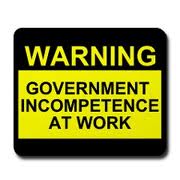by Fred Barnes • Weekly Standard
 Republicans won 7 Democratic seats (so far!), lost none, and took control of the Senate. Harry Reid is history. Democrats thought for sure they’d add some governorships. Nope. They won one but lost 4, including the governor’s race in the bluest of blue states, Maryland. In the House, they lost at least 8 seats, probably more when the final results are in. Now there are more House Republicans on Capitol Hill than we’ve seen in many decades.
Republicans won 7 Democratic seats (so far!), lost none, and took control of the Senate. Harry Reid is history. Democrats thought for sure they’d add some governorships. Nope. They won one but lost 4, including the governor’s race in the bluest of blue states, Maryland. In the House, they lost at least 8 seats, probably more when the final results are in. Now there are more House Republicans on Capitol Hill than we’ve seen in many decades.
For Democrats in the midterm election, it came down to this: they defeated Republican Gov. Tom Corbett in Pennsylvania. That was it. Nothing more. The next most embattled GOP governor, Sam Brownback in Kansas, was reelected.
There’s no reason to haggle over whether it was a “wave.” I’d simply call it a defeat worse than Democrats suffered in 2010. And it wasn’t just a rejection of President Obama and his policies. It was a rejection of liberal Democratic governance and all its excesses from Washington to the hinterlands.
Democrats said the “blue wall” of Democratic senators Kay Hagan of North Carolina, Mark Udall of Colorado, and candidate Bruce Braley in Iowa would keep Republicans from taking the Senate. All three of them lost.
The Democratic fallback position was they’d win one or two or with luck three GOP Senate seats, giving them a hedge against losses: Mitch McConnell in Kentucky, Pat Roberts in Kansas, and the open seat in Georgia. They lost all three.
They targeted specific governors for defeat: Scott Walker in Wisconsin, Rick Snyder in Michigan, and Rick Scott in Florida. They loath Walker for having cut the power of public employee unions, Snyder for signing a right-to-work law, and Scott for being who he is—a rich and successful businessman. All three were reelected.
Remember Wendy Davis, the Democratic state senator in Texas who filibustered against an anti-abortion law that catapulted her to media stardom? She ran for governor and lost to former Texas state attorney general Greg Abbott by 20 points. And her state senate seat went Republican.
With the election of Tom Cotton to the Senate and Asa Hutchinson as governor, Republicans now hold everything in Arkansas: the two Senate and four House seats, both houses of the state legislature, and the governor’s office. Fours years ago, Arkansas was a Democratic state.
The press didn’t seem to have noticed the change. When Bill Clinton returned to Arkansas to campaign for Democratic Sen. Mark Pryor, he was said to be “beloved” in the state. After Clinton appeared, Pryor’s poll numbers tanked. The Clinton magic is gone.
Several of the supposed rising stars in the Democratic party were trounced. Michelle Nunn, daughter of ex-Democratic Sen. Sam Nunn, failed to win enough votes to force a runoff in the Georgia Senate race. Alison Lundergan Grimes of Kentucky, famous for refusing to say whether she’d voted for Obama, was a weak challenger of McConnell, the new Senate majority leader.
Sean Eldridge, the husband of Facebook billionaire and New Republic owner Chris Hughes, hunted for a suitable House seat in New York in which to run. He chose poorly. He lost to Republican Chris Gibson, 65 percent to 35 percent.
So why was yesterday’s Republican victory bigger than 2010? For one thing, they learned the reason they hadn’t won the Senate that year and in 2012: bad candidates. Spurred by Steven Law and Karl Rove of American Crossroads, national Republicans intervened in primaries to produce an impressive group for candidates.
Republicans also did far better than expected in deploying a ground game to identify voters and get them to the polls. They outmatched the heralded Democratic get-out-the-vote operation.
And I give Republican chairman Reince Priebus credit for jettisoning the GOP national committee’s report after the 2012 election telling Republican candidates how to run in the new era. It said they should be what used to be called me-too Republicans – that is, similar to what Democrats are.
The task facing Republicans in 2014 was tougher than in 2010. They had to protect the gains of four years ago and build on them. They did so. They changed Congress, Washington, and their party.
One more thing. Republicans were advised by many, including me, that the needed a national agenda. They shouldn’t just run against Obama. They didn’t. GOP candidates fashioned their own campaign themes on national topics. They weren’t all the same. But they worked.